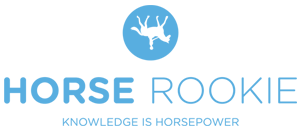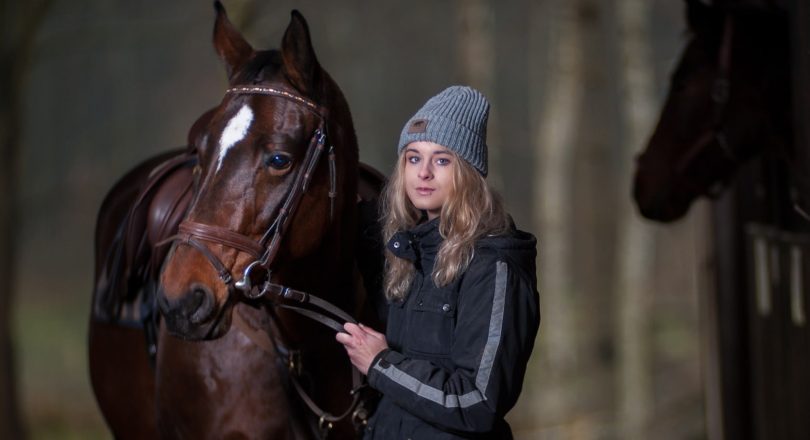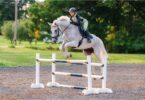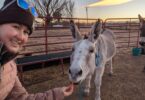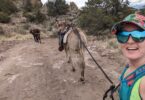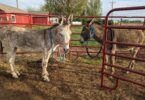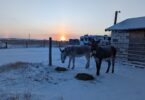Cyberbullying in the horse world is on the rise. We asked riders, trainers, and vloggers how they handle it.
The equestrian world has always been full of differing (and often conflicting) approaches and opinions. Everyone has his or her own idea of what they believe to be the “right way.” In some cases, that passion transforms into aggression and anger.
With the rise of social media and the ease with which people can share opinions (in many cases anonymously), equestrians are no longer forced to deal with in-person consequences of their actions. Because of this, cyberbullying and ridiculing others for the ways they ride or take care of their horses has become far too common.
In this blog, I share my personal experiences with hate comments and chat with two other riders and vloggers about how they deal with bullying online.
Article Quick Links:
- What is Equestrian Cyberbullying
- Is it Better NOT to Share at All?
- Case in Point: Shelby Dennis (Trainer & Vlogger)
- Case in Point: Holly Lenahan (Rider & Vlogger)
- Case in Point: Day by Day Vlogs (Rider & Vlogger)
- How to Deal with Equestrian Bullying
- Negative Nellies, Be Gone!
What is Equestrian Cyberbullying?
There are productive and courteous ways to share differing opinions online, and many equestrians do just that.
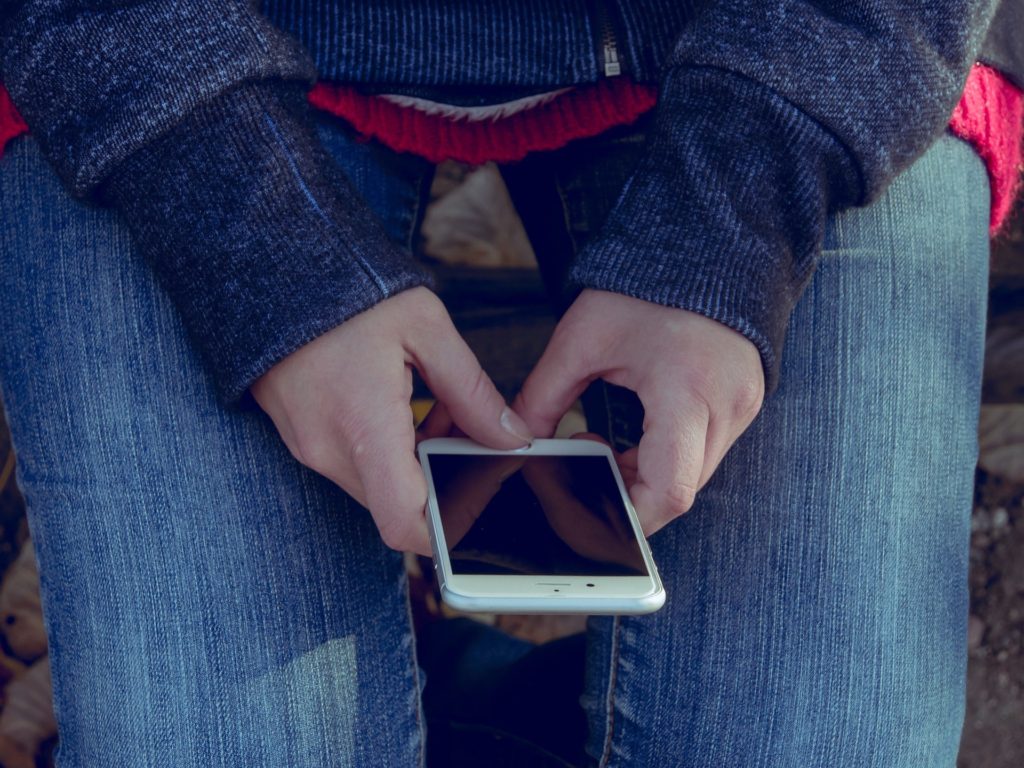
Cyberbullying may be on the rise, but it’s up to all of us to rise above it.
When we talk about cyberbullying, however, we mean comments and behaviors with malicious intent and/or insensitive execution. Bullies want to hurt and degrade fellow riders rather than offer genuinely helpful tips, advice, or support during their journey of betterment.
This readiness and veracity with which some people choose to share disparaging opinions is toxic and can make the horse world quite unpleasant at times.
Every rider, trainer, or vlogger who shares footage online, no matter their number of followers, experiences online hate at some point. (You are NOT alone!)
Be it from horse people they know personally using anonymous methods to contact you or complete and utter strangers embracing the anonymity of their YouTube accounts, mean comments will appear when you have the courage to share your journey online.
You’re at risk of every time you post something, particularly if you show less than perfect riding. (You know, the type of mistakes every horse and rider on this planet make!)
Equestrian cyberbullying occurs so often that many people opt not to post about riding at all, delete or abandon their social media channels, or simply never start them in the first place–despite really wanting to share their journeys online.

Being part of an online community can be hard, but it can also be inspirational.
We share a passion for horses, and our goal should be to foster a community that encourages riders to share their progress and special moments free from the fear of reprisal and hurtful comments.
Instead, we have created an online society where many people are anxious to discuss one of the most important and fulfilling parts of their life in public.
The plethora of opinions in the horse world should be a source for learning and growth, and it can be if we discuss those opinions in a more productive manner.
That means learning to assess each situation, being honest about your true intentions, and never masquerading hurtful opinions as harmless critique.
“My way or the highway” mindsets should not be welcome in the equestrian community.
Wealth can be a big source of stress for budget-conscious riders. Learn more in my article about How to Ride & Show Horses on a Budget.
Case in Point: Shelby Dennis (Trainer & Vlogger)
Follow Shelby Dennis on YouTube
Follow Shelby Dennis on Her Blog
Follow Shelby Dennis on Instagram
Follow Shelby Dennis on Twitter
Having been in the niche of equestrian social media for more than 8 years, I’ve gotten my fair share of online hate and bullying. (It seems some people cannot help themselves–or don’t bother trying.)
After nearly a decade on social media, I still receive numerous hurtful comments every week across my different channels.
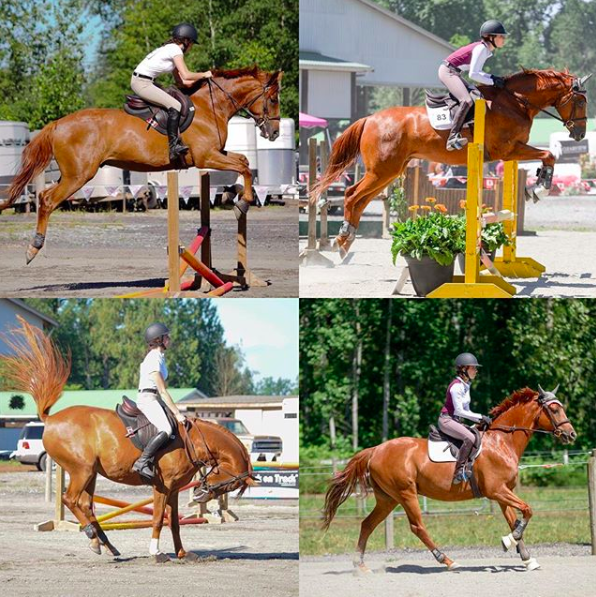
Putting yourself out there to share the good and the bad takes guts.
Just the other day, someone commented on one of my videos to call me a “barn witch.” Why? Because I wanted to braid the mane of a horse I had rescued from slaughter.
Wait…what?!
As an online community, we should be applauding equestrians who take the initiative to rescue horses, who go out of their way to learn and grow as riders, and try to better themselves and their horsemanship.
Even if you do not agree with every little thing you see another rider doing, pick your battles and check your ego before sharing any opinion online.
The person I mentioned above could have simply changed her personal Facebook page status to “I don’t like braiding manes” if she feels so strongly about it. There’s no reason for name calling or hate speech.
(You’d think that’s common sense. Unfortunately, it’s not.)
Sadly, the example above is nothing in comparison to the relentless nature with which some people choose to harass complete strangers online.
You may also enjoy reading My Best Horse Riding Advice & Rookie Mistakes by Shelby Dennis.
One of the worst scenarios I personally experienced was during my time on Tumblr, a social media platform that allows people to send each other anonymous messages.
This type of anonymity can ignite a fire of hate by allowing angry people to hide their true identities and evade any real-world repercussions for their behavior.
The frequency and hateful nature of Tumblr comments was much more aggressive than what I typically see on Instagram or YouTube.
Some users went so far as wishing harm on myself and my horses, all because they didn’t like my equitation, tack, or training plan.
It got to a point where hateful Tumblr messages would appear every day, even several times per day, for months.
I felt immense anxiety any time I saw the message or comment notification. Stomach churning, I would stay up late at night, refreshing my page and waiting for more hate to roll in. And yet, I didn’t turn off the anonymous feature.
It felt like a show of weakness. (Now I know better.)
Friends would tell me simply delete my account. But, years worth of memories and photos of my horse journey? Delete it all?
I didn’t want to delete my account, but I needed to take a step back–for my sanity’s sake.
Over the past few years, I’ve grown up a lot as I continued sharing my riding journey in the public eye on other social media channels.
I’ve chosen not to only share “perfect moments.” I share the good and bad realities of horse life.
While I love the authenticity of my content (as do my followers), a small group of people use the opportunity to nitpick everything I do. Their comments are frustrating and hurtful, at times. Yet, I keep sharing the good and the bad.
The more equestrians who honestly portray their journeys, the more opportunities we all have to learn from and support each other.
We all make mistakes. We have all had bad rides. We all have past photos and videos that now make us cringe.
That doesn’t mean hate comments and cyberbullying are justified. Before sharing your opinion online, ask yourself:
- Has the equestrian specifically requested tips and advice?
- Is there a risk of immediate injury to horse or rider?
- Are you able to phrase your thoughts in a kind and supportive manner?
We have all been guilty of missing the boat on this. We all need to do a better job of bringing each other up and honestly portraying our journeys as riders. We all need to help create a more inclusive online community.
Speaking of community, I talked with several equestrians in the online community about the hate they’ve received and how they handle it.
You may also enjoy reading A Letter to My Younger Self by Shelby Dennis.
Case in Point: Holly Lenahan (Rider & Vlogger)
- Follow Holly Lenahan on Instagram
- Follow Holly Lenahan on YouTube
- Follow Holly Lenahan on Her Blog
- See Holly’s profile in Horse Rookie’s Media Guide
People seem to think that just because they have access to the internet, they can say whatever they want. It’s very easy to be “brave” when hiding behind a computer. There’s no way negative people would say the sorts of things they do online to my face.
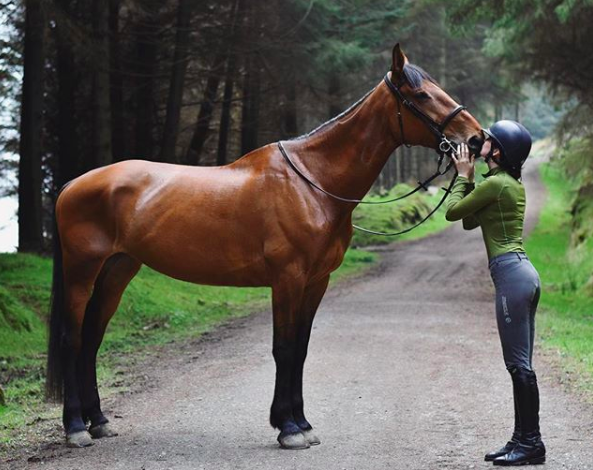
Think about how your comments will affect others before making them.
Someone recently wrote this comment about my horse Fiona: “I’m not saying you can’t love your horse, I’m just saying it’s not well put together and I’d never own it.”
Imagine walking up to someone you’ve never met before after seeing their horse at a show and saying this to them. Comments like this are completely unnecessary and mean-spirited.
(I wonder whether some people get a kick out of putting others down?)
Another thing that can upset me is people implying (or bluntly stating) that I abuse or hurt my horses.
I am a 4th year veterinary medicine student and someone whose whole life will be dedicated to helping animals. Such comments are personal attacks on my morals.
Seeing things like “poor horse” on so many videos and pictures really grates on me, especially since I always put my horses and their welfare first.
Read more about Holly in our Best Equestrian Vloggers Media Guide.
Here are just a few of the negative comments I’ve gotten. (Sadly, there are loads more.)
- “It’s so clear [your horse is] very irritated by that metal pain in her mouth and can’t relax.”
- “You wouldn’t like it if a person kicked you on the side to move, I think the way you kick [your horse] is considered animal abuse… F*** YOU.”
- “This flash strap makes me angry. I wish I could put it on your head/mouth to see how you feel when you can’t open your mouth.”
People are so darn aggressive sometimes, and the equestrian community can be a really toxic place.
Hate comments don’t affect me as much now, but I remember the days when they used to really get me down.
I know a lot of younger people on Instagram who get such awful comments. I really feel it’s important that they know they’re not alone.”
Reflections from Shelby:
Reading those quotes, I can relate to Holly a lot because I’ve gotten many very similar ones. There is a fine line between sharing an opinion in good faith and sharing an opinion with the intent to hurt.
Speaking to people in a hateful manner is simply not okay, even if you believe in free speech.
Freedom of speech does not cover freedom from consequence.
You may not agree with the manner in which everyone rides and cares for their horses, but aggressive online confrontation is never the best way to handle differences of opinion.
Unless you’re going to reach out to them privately from a place of genuine concern and kindly explain why what another rider is doing may be unsafe or potentially harmful, hold your tongue.
Better yet, consider sharing your opinions on certain pieces of equipment or aspects of training without specifically targeting one person.
This is the beauty of social media and blogging. You’re welcome to share your personal opinions on riding on your own pages without being hateful or inflammatory towards others.
Holly also made Shelby Dennis’ List of the 15 Best Equestrian Vloggers.
Case in Point: DayByDay Vlogs (Rider & Vlogger)
- Follow DayByDay Vlogs on Instagram
- Follow DayByDay Vlogs on YouTube
- Follow DayByDay Vlogs on Facebook
- See DayByDay’s profile in Horse Rookie’s Media Guide
Another account I reached out to regarding cyber bullying is a YouTube channel called DayByDay with more than 70K subscribers.
I chose this channel because it features a family who showcases their collective horse riding and ownership journey as they learn the ropes of equestrianism and constantly work to better themselves.
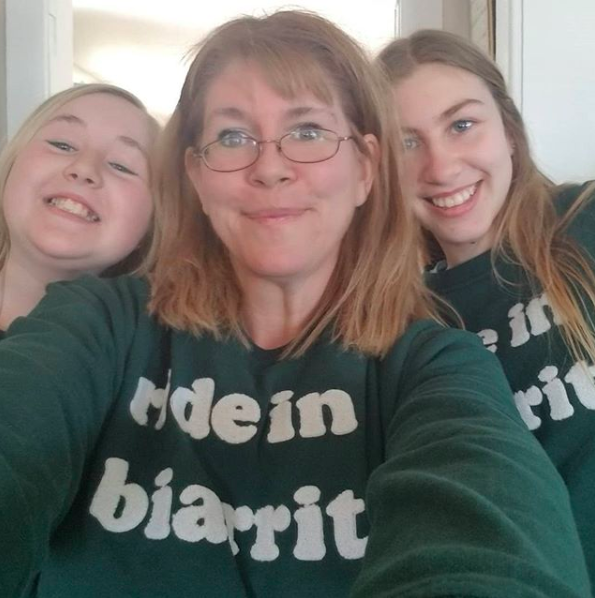
The opinions that matter most… are ours.
The fact that a FAMILY with underage kids stills experiences unacceptable comments directed at CHILDREN is something that we all need to take a hard look at when assessing the behavior of equestrians online.
We were all kids at some point (some of us still are) and all learned to ride day by day. The fact that some adults, teens, and even younger kids go out of their way to ridicule children who are learning is deplorable. Period.
Here is what mom Laura, who runs the channel, had to say:
Being bullied online is drastically different than being bullied in real life.
All the core elements of bullying are still there: people choosing sides and ganging up against another person. The big difference is that people feel untraceable and untouchable online.
That they can hide behind a fake account and computer screen with no risk of physically seeing the reactions their hateful comments cause.
What a disconnect!
Read about Laura’s experience Coming Back from a Bad Fall Part I and Part II.
We have had mean comments posted in anger by “fans.” Those are mostly easily discarded.
The hate that is hardest for me to understand happens when people gang up on us. One person says something mean, and then several others say they agree. Before you know it, 70 people are egging each other on in your comments with a whole new level of momentum.
When they give into the “mob mentality,” people become judge and jury. They enjoy the connection they make with those others that agree with them, regardless of whether that agreement stems from hatred.
Haters feel justified that their opinions are correct when they see others agreeing with them.
A single person showing hate towards you is one thing. A gang of people exuding hatred toward you is far more overwhelming.
We have had people directly edit our videos and repost them online to make it look as though we were doing one thing, when in fact we were doing the complete opposite.
We have had people purposefully generate hate “on our behalf” simply because they could.
Believe it or not, we’ve also had stalkers…
There aren’t many anti-cyberbullying regulations, so unfortunately people can judge, critique and react to anything anyone posts online without consequence.
I used to feel that all people had a right to their opinions and should be able to disagree with mine.
Now, I believe that the only people who should have an opinion about how we live our lives is us.
I’ve learned to shut down haters long before their behavior grows into a group of hate and takes on a life of its own. I delete and block those who don’t embody the spirit of our channels and our family.
Read more about Laura and her family in our Best Equestrian Vloggers Media Guide.
Doing so has decreased the hate we get a lot. People copy each other. They want to belong. If our group of followers is comprised of happy and kind people, then those are the types of new followers we’ll continue to attract in the future.”
Reflections from Shelby:
Teaming up to ridicule others needs to stop, particularly when the intent is to mislead and make situations appear worse or completely different than the reality.
We should not tolerate anyone who is so intent on vilifying someone that they intentionally mislead online fans and followers about the truth.
Creating edited videos that make fun or remove important context to create conflict is an especially insidious aspect of cyberbullying because those who have been misled often jump in to target innocent people.
Edited hate videos are incredibly toxic and rob people of their right to the truth.
Inclusion should be the norm, not the exception, in equestrian sports. Check out Braided: A Herd Dynamic to learn what Horse Rookie is doing to support diversity!
So, how do you deal with equestrian bullying?
Discussion and disagreement online is inevitable. To some extent, it should even be encouraged if and only if it results in positive learning.
When discussions pivot to mindless ridicule and incessant bullying, however, the opportunity for growth has vanished and we have lost ourselves in the process.
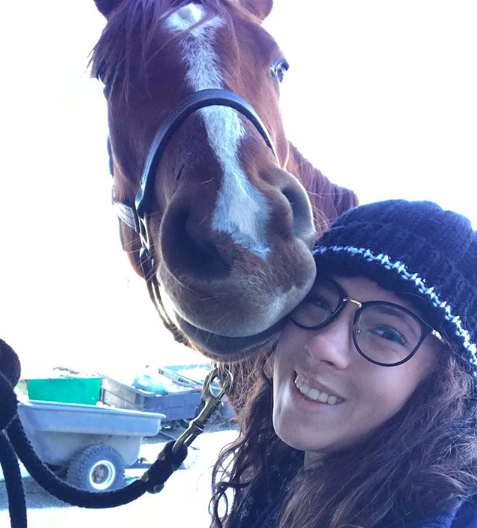
We all have to learn how to deal with bullying in the way that works for us.
There are healthy ways to handle disagreements–ways that allow for the education of others, which should be the sole goal if you are genuinely concerned about the safety or health of horse and rider.
This is what we should all be aiming for. Set a good example and bring others up instead of making people feel badly for not being perfect.
You may also enjoy reading My Best Horse Riding Advice & Rookie Mistakes by Shelby Dennis.
Here are a few tactics you can try if you’re an equestrian being bullied online:
- Talk about it: Confide in someone you trust, like your parents or a close friend or counsellor. Tell them what is going on, and ask for their advice and support. Be honest about what you’re going through, how you’re feeling, and what’s going through your mind. Don’t be alone in your hurt or pain. (Trust me, this really does help.)
- Walk and block: Many people will tell you to “walk away from the computer” or “block bad accounts.” While these are good suggestions, they do not necessarily prevent the hurt that online hate can bring. Nor is it always a realistic option if masses of people are coming after you and/or making new accounts after you block them.
- Report the haters: A lot of channels will not do enough when you rightfully report hateful people, but it’s still worth reporting users to the social media companies to establish a record of activity.
- Stop victim blaming: Don’t blame victims for not being able to handle hate. Bullying should not be treated like an unavoidable side effect of being present in the online community. This takes the responsibility off of the bullies and puts it onto the victims. Choosing to be online and sharing your journey does not give other people permission to harass you.
- Stick up for each other: We need to hold mean spirited people accountable and call out rude comments publicly. Make it unpleasant to be the one posting negative comments, and show your support to those being targeted.
- It’s not you, it’s them: People who sink to the level of cyberbullying do so trying to fill a void or insecurity they have about themselves–not about you. They are projecting a personal sadness or insecurity onto you, and they are trying to seek relief by making someone else feel as terrible as they do. (Happy, successful people don’t post hateful comments.)
- Offer to listen: Though it seems counterintuitive, reaching out to bullies and offering a listening ear (in private) does wonders. Shockingly, many cyberbullies will take you up on your offer, even if it takes them months or years to respond. No matter how hard it is to bite your tongue and not retaliate, showing compassion will model good behavior to those who need role models most.
- Cheer others on: One of the best things to do if you’re feeling attacked is to visit other equestrian channels and show them kindness. Be the follower who comments with something positive and extends support. Be the follower who notices progress and celebrates milestones. The more positive energy you put into others, the better our community becomes.
- Keep a kudos folder: Take screenshots of your favorite positive comments, praise, and encouragement. Store them in a specific folder on your computer and/or phone, and revisit them whenever you fell badly about yourself or see a negative comment. Your ideal followers are those who support you and cheer for you, so keep them at the forefront of your mind.
Negative Nellies, Be Gone!
You’ve probably heard Former U.S. First Lady Michelle Obama’s quote: “When they go low, we go high.”
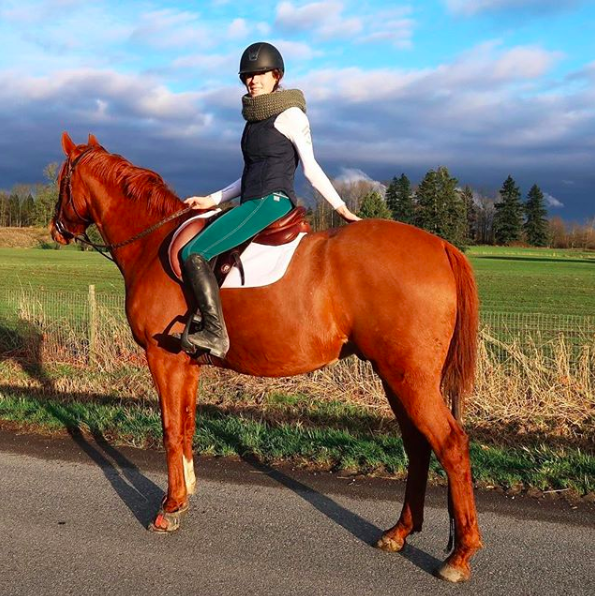
Be your best self and keep sharing!
When you’re facing trying times, remember the reason you began sharing your equestrian journey online in the first place. Remember that most equestrians are kind, fun, and supportive people who want you to succeed and are thankful for the content you share with the world.
(Usually, they are the ones who click “like” but don’t leave a comment.)
Most of all, remember you are not alone.
At the end of the day, it’s up to you to be your authentic self and model the behavior you’d like to see from others. If you’re constantly working on making yourself a better person and a better rider, negative people will lose their traction.
Let’s recommit to building a support online equestrian community where progress is valued over perfection, and kindness is shown over cruelty. Onward!
P.S. If you enjoyed this post, trot on over to:
- Shelby Dennis: Best Horse Riding Advice & Biggest Rookie Mistakes
- Reading Horse Riding for Older Adults: Why It’s Never Too Late
- Write Your Own Letter to Your Rookie Self
- Shelby Dennis & Milo’s Equestrian Gift Guide
- Shelby Dennis on the 15 Best Equestrian Vloggers
- DaybyDay Vlogs: Coming Back From a Bad Fall (Part I)
- DaybyDay Vlogs: Coming Back From a Bad Fall (Part II)
